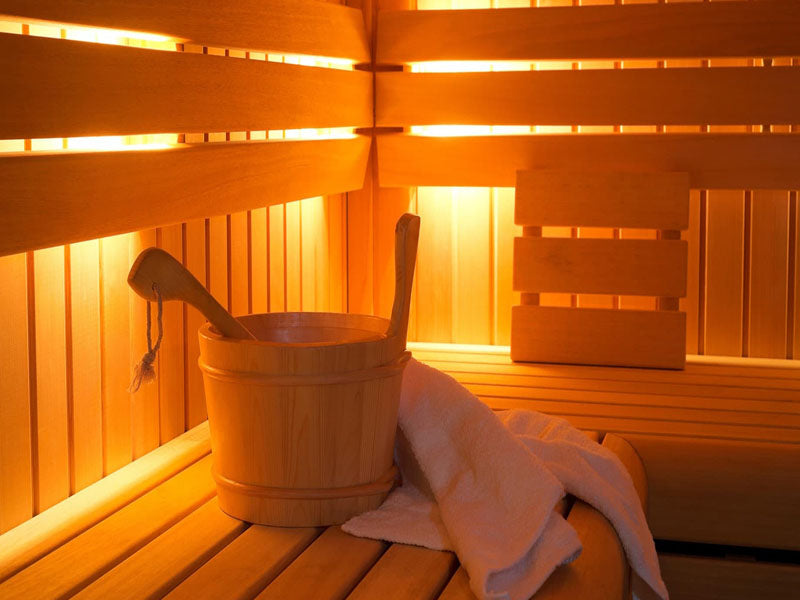Which is healthier, steam room or sauna?
•Posted on August 09 2022

While a sauna may help to relax and relax your muscles, it's not as good for your health as a steam room. The key to the unique health benefits of a steam room is humidity.
Which is better for you?
A steam room is a high humidity room that produces steam by heating water.
A sauna is a low-humidity room that uses hot stones (or infrared rays) to generate high, dry heat. If you use a sauna or steam room, or both, at a health club, you may form your own preferences and prefer one or the other. Some people even
Use the sauna and steam room as their way of entertaining friends or relaxing after get off work. This way is fine, but you need to know the different values provided by the two ways.
The difference between a sauna and a steam room
For example, a steam room does more than open pores and ease breathing. First, like a sauna, it makes you sweat, which is an essential function of the skin. Sweat contains urea, a substance found in urine, so sweating removes harmful substances and other impurities and is good for the body. A steam room uses a steam generator to heat water and spread the water vapor in the air and create 100% humidity, but it is much cooler than a hot rock sauna.
Dry vs Wet Saunas In the sauna vs steam room debate, there is a confusing issue: Saunas are often described as dry or wet.
In a hot stone sauna, high temperatures of 200°F (93.3°C) and low humidity of about 10% can be achieved. In a "dry" sauna, sweat evaporates quickly because there is no humidity, and the human body has a strong tolerance for high temperatures. Humidity rises to 20%. You can add aromatics to the water and pour over hot stones, another benefit of a "wet" sauna.
Sauna temperature comparison
Both steam rooms and saunas can create a temporary fever, or raise your body temperature - a process called hyperthermia, which is very beneficial to the body. Both groups can have the same effect, which is a very important commonality between a steam room and a sauna. If you have breathing problems and allergies, a steam room is a better option (compared to a sauna) because the moist air helps clean your sinuses and airways.
Which is better for you?
A steam room is a high humidity room that produces steam by heating water.
A sauna is a low-humidity room that uses hot stones (or infrared rays) to generate high, dry heat. If you use a sauna or steam room, or both, at a health club, you may form your own preferences and prefer one or the other. Some people even
Use the sauna and steam room as their way of entertaining friends or relaxing after get off work. This way is fine, but you need to know the different values provided by the two ways.
The difference between a sauna and a steam room
For example, a steam room does more than open pores and ease breathing. First, like a sauna, it makes you sweat, which is an essential function of the skin. Sweat contains urea, a substance found in urine, so sweating removes harmful substances and other impurities and is good for the body. A steam room uses a steam generator to heat water and spread the water vapor in the air and create 100% humidity, but it is much cooler than a hot rock sauna.
Dry vs Wet Saunas In the sauna vs steam room debate, there is a confusing issue: Saunas are often described as dry or wet.
In a hot stone sauna, high temperatures of 200°F (93.3°C) and low humidity of about 10% can be achieved. In a "dry" sauna, sweat evaporates quickly because there is no humidity, and the human body has a strong tolerance for high temperatures. Humidity rises to 20%. You can add aromatics to the water and pour over hot stones, another benefit of a "wet" sauna.
Sauna temperature comparison
Both steam rooms and saunas can create a temporary fever, or raise your body temperature - a process called hyperthermia, which is very beneficial to the body. Both groups can have the same effect, which is a very important commonality between a steam room and a sauna. If you have breathing problems and allergies, a steam room is a better option (compared to a sauna) because the moist air helps clean your sinuses and airways.
Comments
0 Comments
Leave a Comment